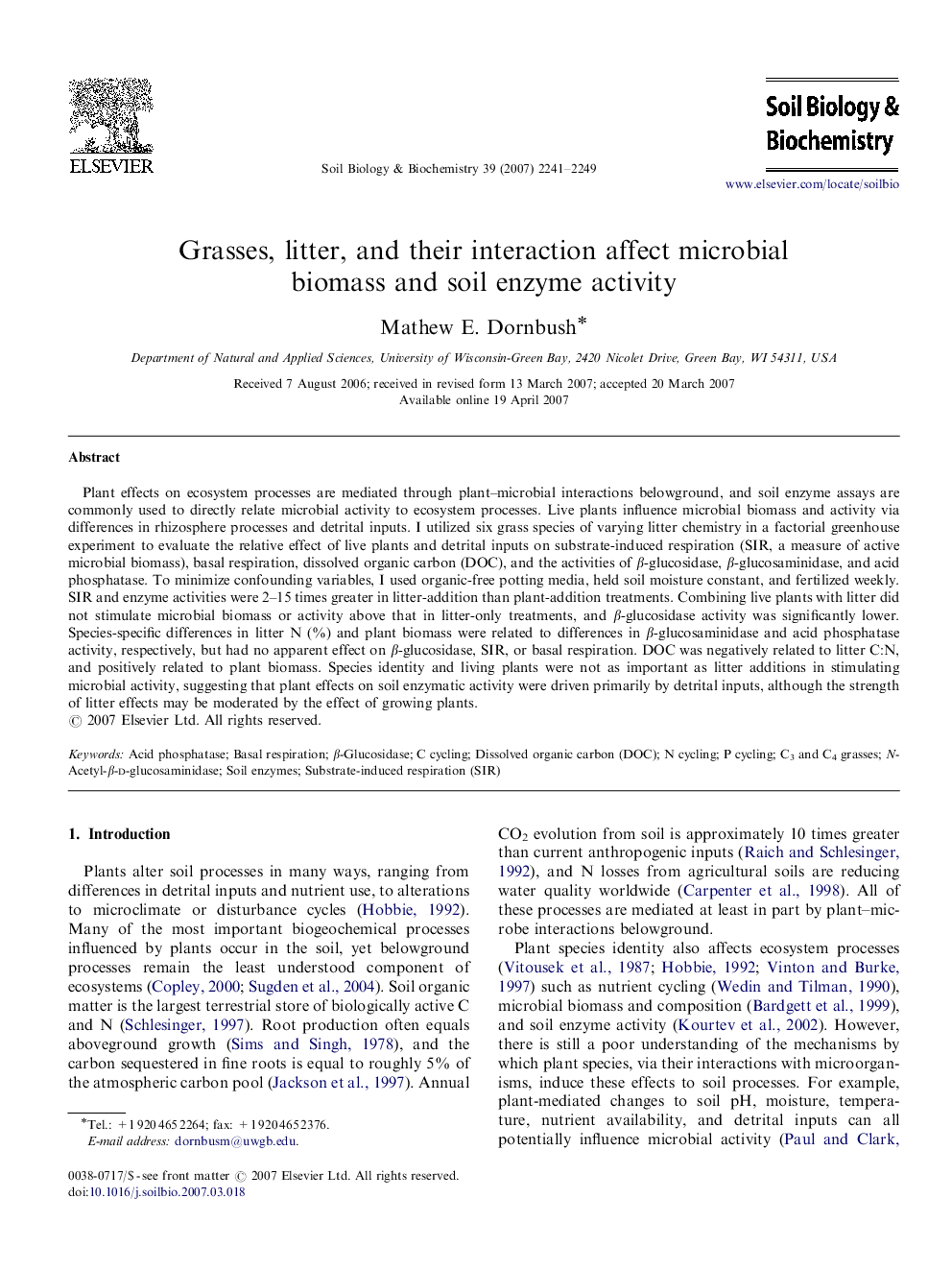| Article ID | Journal | Published Year | Pages | File Type |
|---|---|---|---|---|
| 2026181 | Soil Biology and Biochemistry | 2007 | 9 Pages |
Plant effects on ecosystem processes are mediated through plant–microbial interactions belowground and soil enzyme assays are commonly used to directly relate microbial activity to ecosystem processes. Live plants influence microbial biomass and activity via differences in rhizosphere processes and detrital inputs. I utilized six grass species of varying litter chemistry in a factorial greenhouse experiment to evaluate the relative effect of live plants and detrital inputs on substrate-induced respiration (SIR, a measure of active microbial biomass), basal respiration, dissolved organic carbon (DOC), and the activities of β-glucosidase, β-glucosaminidase, and acid phosphatase. To minimize confounding variables, I used organic-free potting media, held soil moisture constant, and fertilized weekly. SIR and enzyme activities were 2–15 times greater in litter-addition than plant-addition treatments. Combining live plants with litter did not stimulate microbial biomass or activity above that in litter-only treatments, and β-glucosidase activity was significantly lower. Species-specific differences in litter N (%) and plant biomass were related to differences in β-glucosaminidase and acid phosphatase activity, respectively, but had no apparent effect on β-glucosidase, SIR, or basal respiration. DOC was negatively related to litter C:N, and positively related to plant biomass. Species identity and living plants were not as important as litter additions in stimulating microbial activity, suggesting that plant effects on soil enzymatic activity were driven primarily by detrital inputs, although the strength of litter effects may be moderated by the effect of growing plants.
